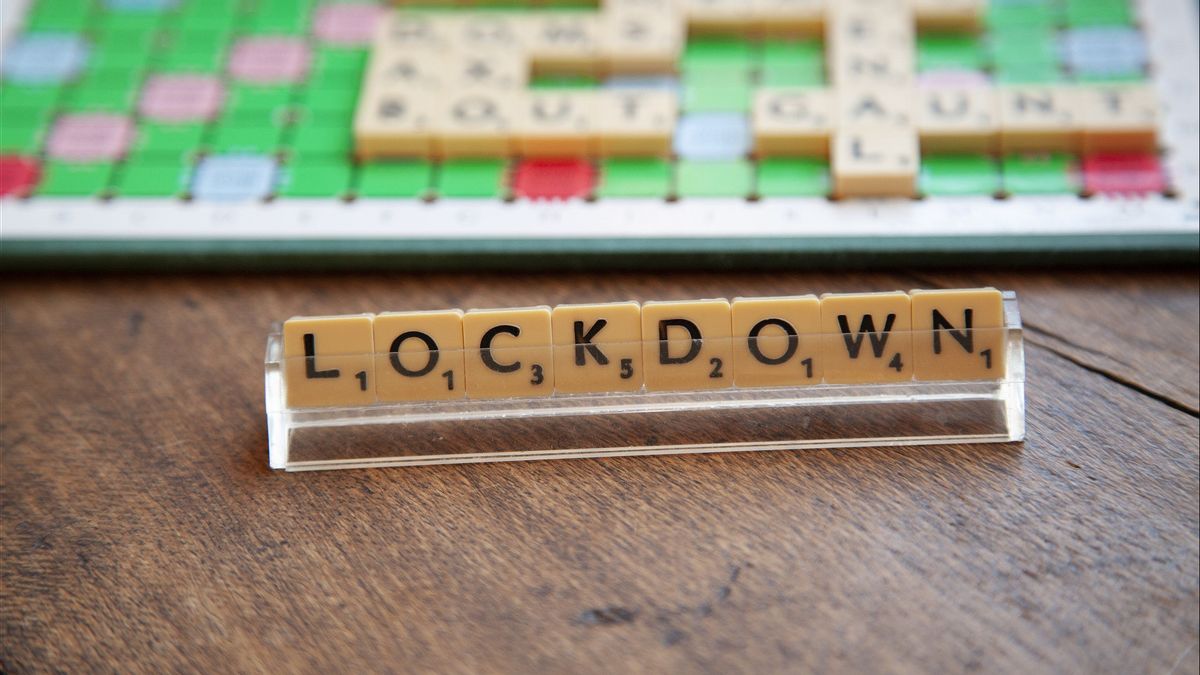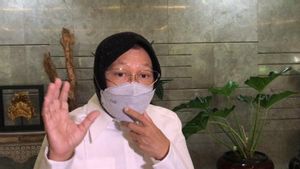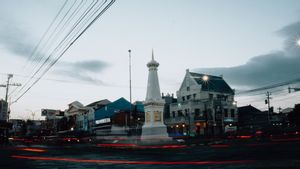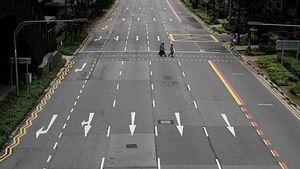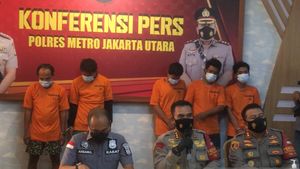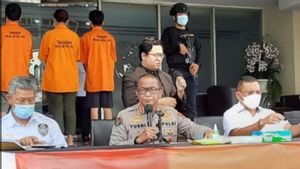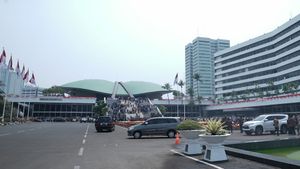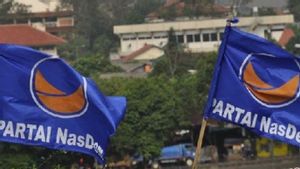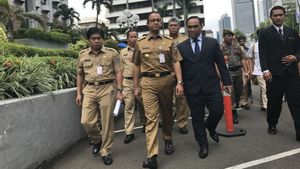JAKARTA - The DKI Provincial Government is reluctant to adopt a regional quarantine policy (lockdown) throughout Jakarta when the area is experiencing a surge in COVID-19 at this time.
It is known, the spike in COVID-19 cases in Jakarta began a few weeks after the Eid holiday. At its peak, Jakarta's new COVID-19 cases per day reached the highest number on Sunday, June 20, namely 5,582 new cases. On Monday, June 21, new cases reached 5,014 cases.
The bed occupancy ratio (BOR) for COVID-19 treatment in Jakarta is also running low. The BOR for isolation of COVID-19 patients currently reaches 90 percent.
Meanwhile, the BOR for the ICU specifically for COVID-19 reached 81 percent. In fact, the DKI Provincial Government has recently increased the number to a total of 10 thousand beds.
Responding to this, Deputy Governor of DKI Jakarta Ahmad Riza Patria admitted that his party did not choose the lockdown option to suppress the spread of COVID-19 in the capital city. Riza said that the authority to tighten regional mobility was in the hands of the central government.
"DKI Jakarta will follow the policies and decisions that have been taken by the central government. What has been conveyed by the Coordinating Minister for the Economy, Mr. Airlangga, will be included in the governor's regulation," said Riza, Monday, June 21.
In principle, DKI continues to carry out micro PPKM with the tightening decided by the central government. In addition, the DKI Provincial Government is also increasing the capacity of health facilities, monitoring health protocol violations, and intensifying vaccinations.
"In the past, the authority was in the regions, now the authority is at the center. Now there is PPKM which is regulated by the central government, it is intended for good coordination, synchronization, harmonization and cooperation throughout the region," explained Riza.
Separately, the Head of Public Relations of Metro Jaya Police, Grand Commissioner Pol Yusri Yunus confirmed that his party had imposed restrictions on the mobility of residents starting at 9 p.m. on 10 roads in Jakarta. But this is not the same as a lockdown.
"There are 10 points that we will do restrictions on. I repeat the restrictions. Don't let it slip later, it's called a lockdown of all kinds. There is no lockdown, this is a restriction," said the Head of Public Relations of the Metro Jaya Police, Grand Commissioner Pol Yusri Yunus.
The mobility restriction was carried out by the Metro Jaya Police at 21.00-04.00 a.m on 10 roads where health protocol violations often occur in the form of crowds due to cafes, bars, and restaurants that are open outside the permitted hours.
SEE ALSO:
Then, DKI also has other considerations why not try to implement a lockdown. In the midst of the push for a lockdown, the DKI Regional Revenue Agency (Bapenda) admitted that the DKI APBD was not sufficient to finance the needs of the community if the lockdown was implemented.
Based on a rough calculation, the funds amounted to Rp11,083,768,944,847 which was obtained from regional tax and levy revenues until the second quarter of 2021.
If the additional funds for the COVID-19 response which are owned by DKI are around Rp5 trillion, it is still not sufficient for the cost of eating for a month for the 10.56 million residents of DKI.
Because to meet the food needs of the people of Jakarta, with an estimated one meal of Rp20 thousand, it costs around Rp19 trillion. This does not include other supporting costs for electricity and water as well as non-KTP DKI residents residing in the capital city.
DKI Jakarta's financial condition is not in a good condition considering that it is currently impossible to withdraw revenue from business sectors that are subject to local taxes.
"So if you ask if there is money, yes there is, but enough or not enough, I can't comment because I don't know the amount of money needed. Because for the expenditure needs, it is with the DKI Jakarta Regional Development Planning Agency (Bappeda), which has the function for that," said Secretary of the DKI Jakarta Bapenda Pilar Hendrani.
The English, Chinese, Japanese, Arabic, and French versions are automatically generated by the AI. So there may still be inaccuracies in translating, please always see Indonesian as our main language. (system supported by DigitalSiber.id)
